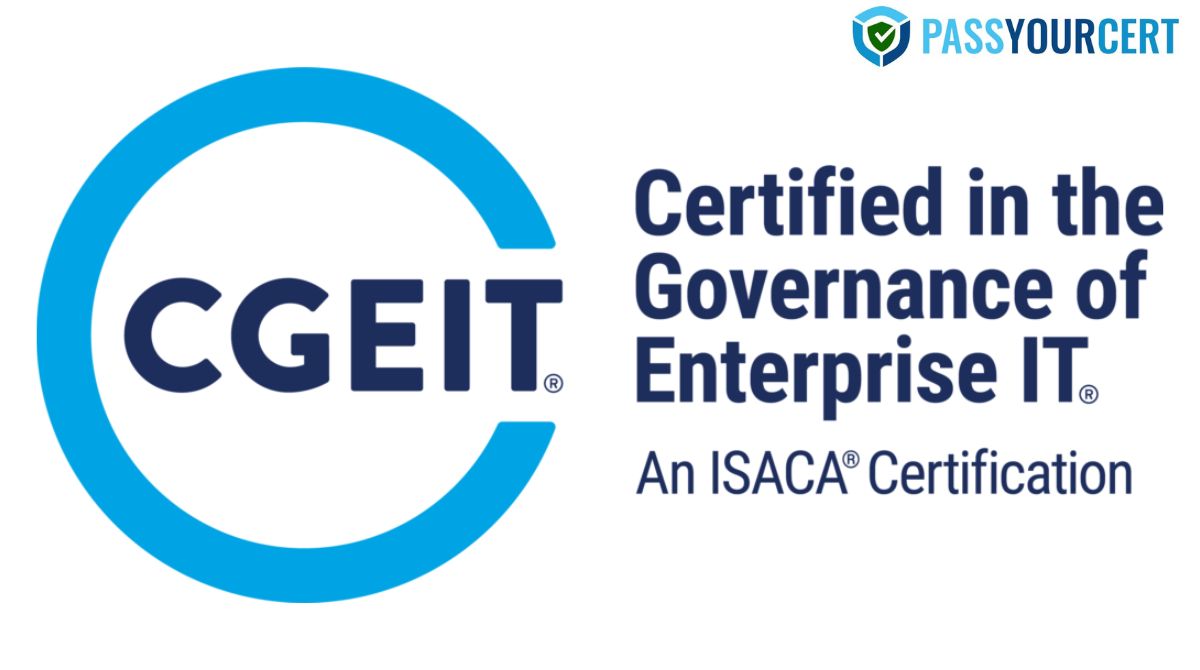In the rapidly evolving landscape of technology, the role of IT governance has never been more pivotal. At its core, IT governance aligns IT strategy with business goals, facilitating the effective utilization of technology to drive organizational success.
The Certified in the Governance of Enterprise IT (CGEIT) certification is designed for professionals who demonstrate their ability to blend IT governance with business objectives, ensuring sustained growth and compliance.
In this article, get to know about CGEIT Online Training, Prerequisites, Exam Structure and its Domains
Why CGEIT Certification Matters
Obtaining a CGEIT certification signifies a deep understanding of IT governance principles and practices. With this credential, professionals can articulate their capability to implement strategic frameworks that optimize IT investments while mitigating risks. It serves as a testament to their skills and knowledge, making them invaluable assets in any organization.
Who Should Pursue CGEIT Certification?
CGEIT is ideal for senior IT executives, including Chief Information Officers (CIOs), Chief Technology Officers (CTOs), IT directors, and managers involved in governance, risk management, and compliance. This certification not only enhances individual recognition but also fosters organizational competency in governance processes.
Eligibility Criteria for CGEIT Certification
To qualify for the CGEIT certification, applicants must demonstrate a minimum of five years of experience in IT governance. This experience should encompass at least one of the following domains:
- Governance of Enterprise IT
- IT Resources
- Benefits Realization
- Risk Optimization
Furthermore, candidates must commit to adhering to ISACA’s Code of Professional Ethics, ensuring a standard of integrity and professionalism in their work.
Understanding the Value of CGEIT Certification
Enhancing Personal and Organizational Value
The CGEIT certification is more than just a title; it translates into tangible business value. Certified professionals are equipped to improve organizational efficiency, enhance resource allocation, and support strategic decision-making processes. The skills acquired through CGEIT training empower professionals to drive more significant contributions, leading to improved job performance, higher compensation, and better career opportunities.
Networking Opportunities and Resources
CGEIT certification holders gain access to a global network of governance professionals. This community fosters knowledge sharing, collaboration, and mentorship, providing ongoing support in navigating the complexities of IT governance.
Prerequisites for CGEIT Certification
While there are no specific pre-requisites for taking the CGEIT exam, candidates are encouraged to undertake relevant training and preparation courses. Enrolling in a recognized study program can significantly enhance understanding and retention of the exam material. Additionally, familiarity with ISACA’s framework and IT governance principles will prepare candidates for success.
Exam Structure and Domains
The CGEIT exam is structured into four key domains, covering critical aspects of IT governance:
Domain 1: Governance of Enterprise IT (40% of exam)
This domain focuses on establishing a comprehensive framework for enterprise IT governance. It emphasizes the alignment of IT strategies with organizational goals, considering risk and opportunity optimization.
Domain 2: IT Resources (15% of exam)
Covers the management, allocation, and optimization of IT resources to achieve business objectives. Candidates must demonstrate an understanding of resource planning, cost justification, and effective utilization.
Domain 3: Benefits Realization (26% of exam)
Highlights the processes for monitoring and measuring the benefits derived from IT investments. Candidates will need to showcase their ability to assess performance through Key Performance Indicators (KPIs) and continuous improvement strategies.
Domain 4: Risk Optimization (19% of exam)
Focuses on the frameworks and methodologies required for IT risk management. Understanding how to identify, assess, and communicate risks to stakeholders is crucial within this domain.
Exam Information at a Glance
- Duration: 4 Hours
- Question Format: Multiple Choice
- Number of Questions: 150
- Passing Marks: 450 out of 800
- Available Languages: English, French, German, and more
Learning Pathways for CGEIT Certification
Flexible Learning Options
Passyourcert offer diverse training methods tailored to suit individual preferences and schedules:
- One-on-One Training: Personalized sessions that provide instant clarification and ensure an in-depth understanding of complex topics.
- Online Training: Flexible and cost-effective options that allow learners to study at their own pace, accommodating varying schedules and learning preferences.
- Corporate Training: Customizable training programs designed for organizations looking to enhance their employees’ governance competencies.
Start your journey with www.passyourcert.net and get CGEIT Certification.
Recommended Study Resources
- CGEIT Review Manual: Comprehensive guide covering essential concepts and exam topics.
- Practice Exams: Simulated exams to familiarize candidates with question formats and difficulty levels.
- Online Forums: Engage with peers and experts in dedicated discussion forums to share experiences and insights.
ISACA’s Appeal Process
If applicants believe their exam results are incorrect or have issues related to the exam conditions, ISACA provides an appeal mechanism for recourse.
Conclusion
In today’s enterprise landscape, mastering IT governance is essential for driving sustainability and innovation.Enroll today in Passyourcert’s CGEIT Online Training program and get Certified. The CGEIT certification not only empowers professionals with the skills needed to optimize IT resources but also solidifies their role as strategic leaders within their organizations. By pursuing CGEIT certification, candidates position themselves as credible governance experts, ready to tackle the complexities of enterprise IT while contributing to their organization’s success.


